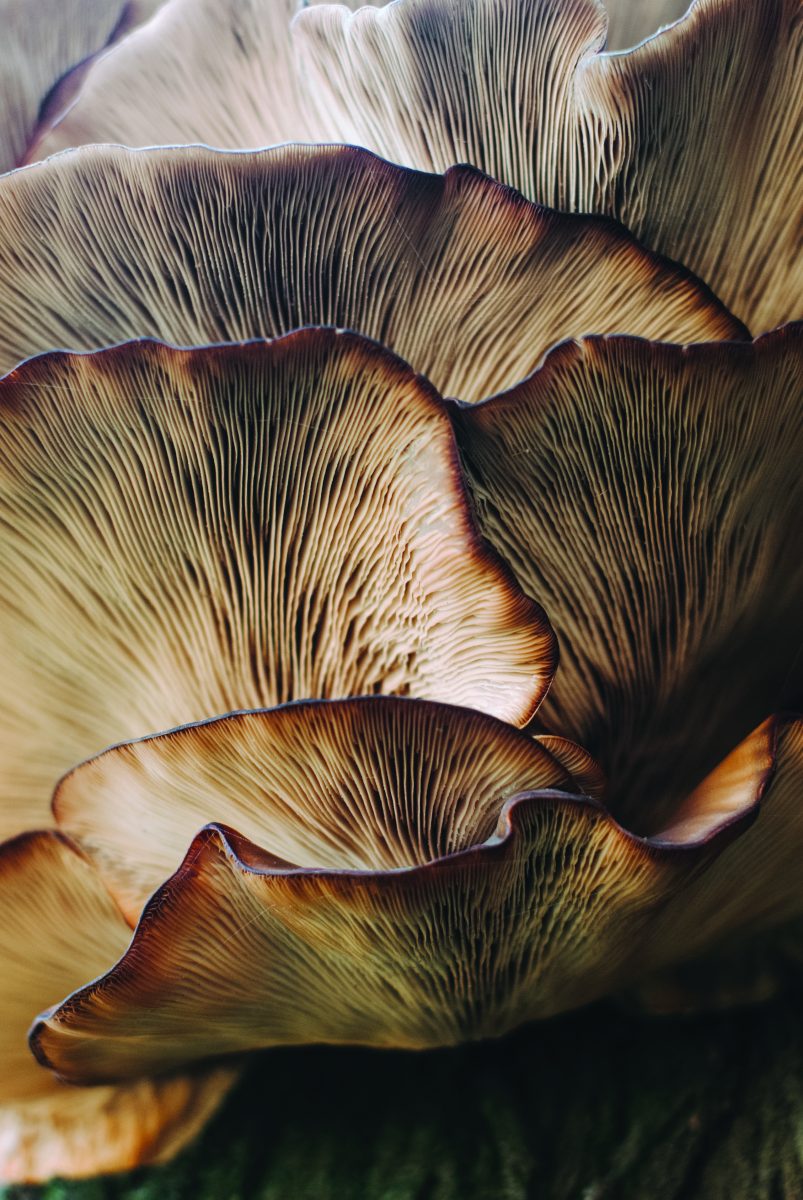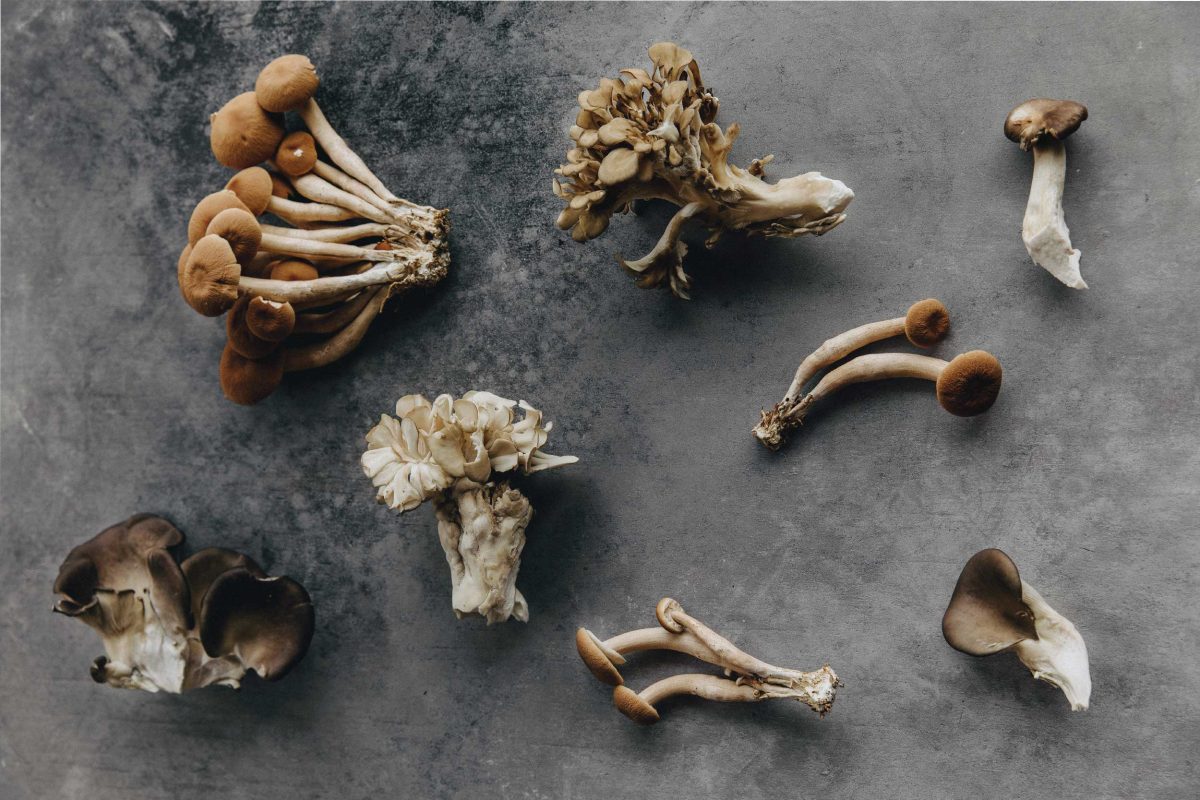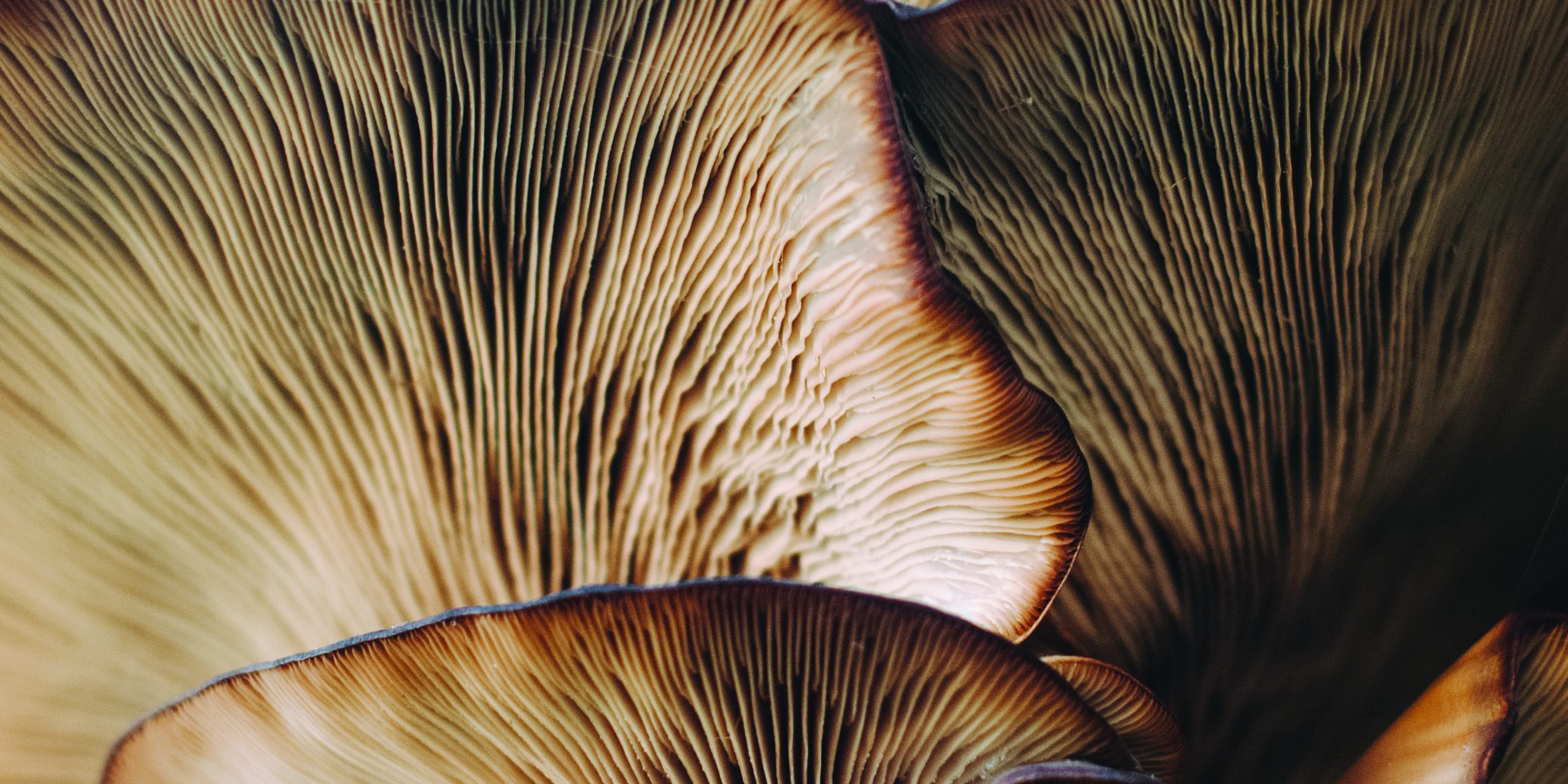They work wonders in the environment by restoring polluted areas. In the medical field, they have transformed the way we treat people. With their fascinating biological properties, mushrooms are increasingly being discussed and used.

Reishi chai, lion’s mane matcha, psilocybin microdosing, and psychedelic therapy… In the health field, medicinal mushrooms are available in the form of drinks, nutritional supplements, and recipes. In the holistic field, psilocybin, the active ingredient in hallucinogenic mushrooms, is at the heart of certain practices. Let’s take a look at these promising methods.
THE RELATIONSHIP BETWEEN HUMANS AND PLAnts
Initially accidental, the presence of hallucinogenic mushrooms in the diets of our ancestors has had an impact on the foundations of humanity. The changes related to the effects of psilocybin, the active ingredient in hallucinogenic mushrooms, could be the starting point of human spirituality and have influenced our relationship with all living beings.
Terrence McKenna, an ethnobotanist and the father of the use of natural psychedelic plants, explains that the hallucinations caused by the consumption of hallucinogenic mushrooms act as “molecular messengers.” The relationship between humans and mushrooms is therefore “a transfer of information from one species to the other.” In the presence of this relationship, it is possible to gain access to information and renewed behavioural patterns that lead us to more elaborate degrees of introspection. According to McKenna, “shamans represent the avant-garde […] of this creative progression.”
In the age when the diet of our ancestors included psilocybin, the value of community, altruism, language, long-term planning, and the understanding of cause-and-effect relationships were developed. McKenna asserts that the presence of psilocybin was an agent of change in archaic societies by tempering hierarchical values, brutal behaviours, and the search for domination. With the gradual disappearance of psilocybin from our diets due to climate change, this natural tendency of humans toward domination took the reins again, causing the evils of our modern society.
The consumption of psilocybin provides a feeling of freedom, harmony, and becoming one with all living beings. This experience can lead to a better understanding of the self, others, and the world. With a “hallucinogenic” dose, the effects are intensified. Lack of inhibition, wild laughter, euphoria, the emergence of forgotten memories, visual and auditory hallucinations. But the use of psilocybin is not without risk. Bad trips can lead to anxiety attacks, phobias, arrhythmia, confusion, and persistent post-hallucinatory syndrome.
A sensitive education and good self-knowledge are essential. As with all drugs, psychedelics are not everyone. Adopting a new perspective of the universe can be troubling, and support is necessary for some individuals. The democratization of psychedelics would therefore allow and facilitate support, coaching, and temperate, conscious consumption.

PSILOCYBIN AND MICRODOSIN
The new trend of microdosing makes it possible to take advantage of the benefits of psilocybin in moderation. Microdosing involves consuming a very low or “sub-hallucinogenic” dose of a psychedelic substance, such as mushrooms containing psilocybin. According to the media, microdosing has grown in popularity, but the scientific literature contains little research about this practice, since it is still illegal today.
With a growing market on the web, the microdosing of hallucino- genic mushrooms is delighting its enthusiasts. Improved memory, concentration, and creativity: microdosing is now part of the routine of a growing number of Canadians looking to improve their mental health and cultivate well-being.
PSILOCYBIN AND PSYCHEDELIC THERApy
Psychedelic therapy is no longer a secret. More and more research- ers are interested in the use of psilocybin in the treatment of depression, anxiety, and drug addiction.
In 2020, the first Canadian legally used it in the context of therapy. Since then, the accessibility of psychedelic-assisted treatments has been growing, and requests to use psychedelic drugs for therapeutic purposes under Health Canada’s special access program have been increasing.
As a therapeutic tool, psilocybin leads the brain to create new links, broaden perspectives, and explore new paths. The experience pushes the patient to break down restrictive thought patterns. By freeing themselves from intrusive thoughts, they learn to see things differently. Although taking mushrooms is an integral part of the treatment, the therapy remains a complete process. It requires a significant investment from the patient, both before and after the experience.
The revival of psychedelics would be a real revolution in the treat- ment of mental disorders, according to Dr. Flanders, a psychologist specializing in psychedelic-assisted therapy. “Psychedelics are very different from other drugs,” he explains. “Rather than simply mask- ing the symptoms, they lead the patient to confront their situation over the course of one to three short yet intense experiences.” Danilo Bzdok, a professor at McGill University and a researcher studying the effects of psychedelics on the brain, confirms this: “Psychedelic drugs might very well be the next big thing to improve clinical care for major mental health conditions.”
Illegal and far from being available to the general public, hallucinogenic mushrooms are, however, now offered by Health Canada to certain palliative care patients.
MYCOTHERAPY
Antibacterial, antioxidant, cardiovascular function regulators, cholesterol and stress reducers, immune and respiratory function stimulators… The therapeutic virtues of fungi seem endless. While mycology is the science that studies fungi, mycotherapy is the branch of alternative medicine that uses medicinal fungi for therapeutic purposes.
Possessing a high amount of zinc, iron, fibre, amino acids, minerals, and plant proteins, medicinal fungi support overall health. They are also adaptogenic and can help the body combat stress.
Incorporated into food or consumed in the form of tea or herbal tea, therapeutic fungi improve overall well-being by effectively supporting the immune system.
-
The most recognized form of fungus is undoubtedly penicillin, which is used to treat bacterial infections.
-
With its antioxidant power, reishi is nicknamed the “mushroom of immortality.”
-
Contributing to the proper functioning of the digestive tract, shiitake mushrooms also help fight cholesterol.
-
Ashwagandha is an adaptogen that relieves anxiety and fatigue, reduces stress, and improves sleep quality.
-
Helping to strengthen the immune system, maitake reportedly supports immunocompromised people. It is commonly used as a supplement in the context of cancer treatments.
-
With its anti-fatigue properties, ginseng root improves vitality and concentration ability.
THE INTELLIGENCE OF THE MUSHROOm
Terrence McKenna talks about the hallucinogenic mushroom as a form of intelligence that is communicated: a transfer of information from plant to human. The progress achieved through the consumption of mushrooms does not occur miraculously… It must be transferred, communicated, then integrated.
This idea is fully consistent with the advances of Paul Stamets, an American mycologist and writer. Stamets speaks of the “underground” portion of mushrooms (the mycelium) as a natural information exchange network in perpetual communication and adaptation to external changes. Considered a collective conscious- ness, the mycelium knows the excesses and deficiencies of the soil. It memorizes, anticipates, and communicates changes in its environment, among other things, with tree roots. It adapts to regain balance and support the “immune system” of our eart.
On the environmental level, the mushroom is an autonomous and powerful matrix. On the human level, the mushroom shows great progress, but some proof remains to be done. Whether it’s sup- porting the immune system, treating anxiety and depression, or inhabiting the world with more harmony, the mushroom appears to be a versatile ally in supporting the health of the body, mind, and soul. Might such a powerful matrix with the ability to support the entire Earth be able to support the human being as a whole?
Ensure that you are properly accompanied in all your steps surrounding psychedelics. If you have any questions or are worried about your consumption or that of a loved one, don’t hesitate to ask for help or consult your healthcare professional. For support, you can visit drogue-aidereference.qc.ca or call 1-800-265-2626, 24 hours a day, 7 days a week. This service is bilingual, confidential, anonymous, and free of charge.
Sources
1 Cloutier, Maxance. Les champignons magiques sortent de l’ombre. Le Devoir. 26 juillet 2022
2 De Billy, Hélène. Dr Joe Flanders, psychologue : le retour vers le futur des psychédéliques. Ordre des psychologues du Québec. Septembre 2022
3 Gris Roy, Camille. Accès à la thérapie psychédélique au Canada : où en est-on ? Radio-Canada. 10 juillet 2022
4 Lim, Kim-Anh. Les champignons sauveront-ils le monde ? Environnement. Nexus94. Septembre-octobre 2014
5 Production Accès. Les champignons médicinaux. Journal Accès. 4 février 2020
6 Vernet, Camille. Les vertus médicinales des champignons hallucinogènes. Radio-Canada. 15 juin 2021




